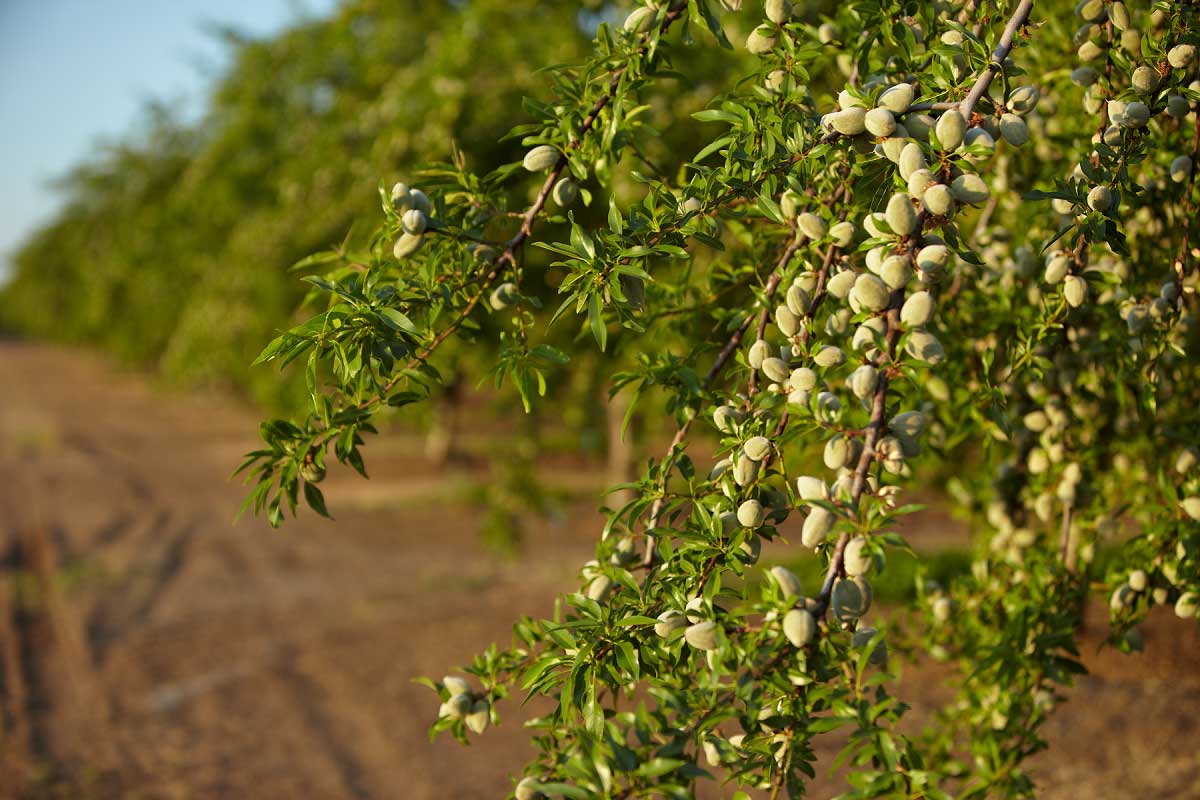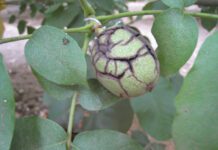
California’s almond acreage continues to grow, but at a gradually slowing rate, according to two new reports released in April by the Almond Board of California and USDA National Ag Statistics Service. While the number of almond orchards removed also increased over the previous year, it was not enough to offset the overall acreage gains.
Meanwhile, the NASS subjective crop report released May 12 predicted the almond crop harvested in 2022 will come in at 2.8 billion pounds, 4% below last year’s record 2.92 billion pounds. Forecasted yield is 2,040 pounds per acre, 8% below the 2021 yield of 2,210 per acre. The Subjective Forecast is the first of two production reports from NASS for the coming crop year. It is based on opinions from a phone survey conducted from April 19 to May 6 of randomly selected California almond growers. The sample of growers, which changes every year, is spread across regions and different sized operations.
“A lower crop estimate was not totally unexpected versus last year’s 2.9 billion pounds,” said Richard Waycott, president and CEO of the Almond Board of California (ABC). “Some growers’ crops this spring were impacted by frost, while all growers are managing continuing concerns about water availability. However, demand for California almonds around the globe remains strong and California almond growers are prepared to meet that demand.”
According to an estimate from Land IQ, bearing almond orchards at harvest will cover 1.338 million acres across California, an increase of 29,000 acres, or about 2.2%, over last year. The report estimates 59,732 acres of orchards will be removed before harvest, nearly 12,000 acres more than last year.
These estimates from Land IQ’s 2022 Standing Acreage Initial Estimate look at bearing for the current 2021-22 crop year. In addition, the USDA’s National Agricultural Statistics Service (USDA-NASS) 2021 California Almond Acreage Report released today gives a comprehensive look at last year.
USDA-NASS said nonpareil continued to be the leading variety, followed by Monterey, Butte, Carmel and Independence.
“These estimates show that California almond production will remain strong,” Waycott said. “Demand for almonds in California, the U.S. and around the globe continues to grow and California almond growers are prepared to meet that demand.”
On July 8, NASS will release its second production estimate, the 2022 California Almond Objective Report, which is considered more accurate and is based on actual almond counts using a more statistically rigorous methodology to determine yield.

Marni Katz
Marni Katz has lived and raised her family in the San Joaquin Valley for nearly 30 years. In that time, she has covered agriculture for a number of leading ag publications and organizations and gained a reputation for understanding and digesting complex information and presenting it to growers. She enjoys learning about new ways growers can farm more profitably and efficiently, and working with researchers and stakeholders to bring that information to the growing community. In her free time, Marni plays saxophone with jazz groups throughout the Valley and is an avid tennis nut.















